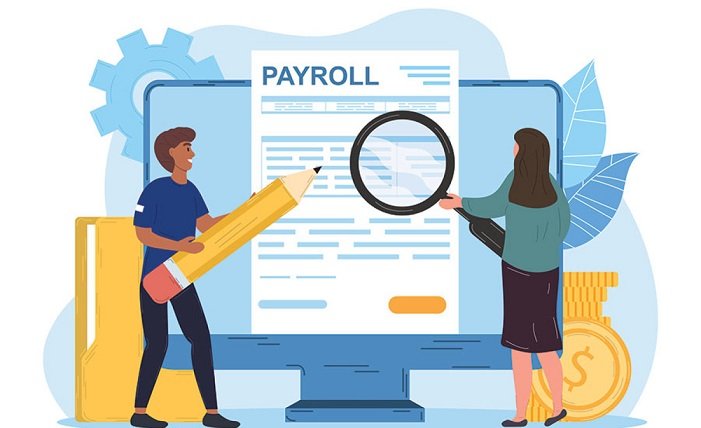Streamlined Payroll Management for Small Businesses

Introduction to Payroll Challenges
Managing payroll is a complex task that many small businesses struggle with. The intricacies of calculating wages, ensuring timely payments, and staying compliant with regulations can be overwhelming. By utilizing small business payroll software, companies can simplify these processes and focus on their core operations. Notably, automated systems can handle repetitive tasks such as record-keeping and calculations, reducing human error and saving valuable time.
Many small businesses face challenges such as misclassifying employees, inaccurately tracking time, and falling behind on tax submissions. These issues can lead to significant financial penalties and employee dissatisfaction. Accurate payroll is about ensuring employees are paid on time and maintaining trust and compliance with legal requirements. Addressing these concerns through robust payroll management systems that enhance overall business efficiency and mitigate risks associated with payroll errors is crucial.
Key Components of Effective Payroll
Effective payroll management involves several key components that are essential for the smooth running of a business:
- Accurate Time Tracking: Recording hours worked is foundational to accurate payroll. Businesses must ensure that all hours, including overtime and leave, are correctly logged. This accuracy prevents disputes and ensures employees are fairly compensated for their work. Advanced time-tracking tools can automate this process, reducing manual effort and the likelihood of errors.
- Timely Payments: Ensuring payments are made on time builds trust with employees. Late payments can cause financial strain for workers and degrade their trust in the management. Punctual payroll ensures that employees remain motivated and engaged. Regularly scheduled payroll runs can help maintain consistency and reliability, promoting a positive workplace culture.
- Comprehensive Reporting: Detailed reports help understand payroll trends and make informed decisions. These reports can provide insights into labor costs, overtime, and compliance with financial regulations, aiding in better financial planning and budget forecasts. Data analytics within payroll software can enhance decision-making by offering a clearer picture of payroll patterns and contributing to strategic business planning.
Time-Saving Payroll Solutions
Implementing time-saving solutions can greatly reduce the administrative burden on small business owners. Automated payroll software, for instance, can handle the complexities of wage calculations, tax deductions, and direct deposits. This automation minimizes errors that are common with manual calculations and ensures accuracy in every payroll cycle, thereby enhancing operational efficiency.
Moreover, time saved through automation can be redirected toward more strategic business activities. With features like automated reminders and updates on regulatory changes, small business owners remain compliant without delving into the minutiae of payroll processing. This frees up resources to focus on growth and customer satisfaction.
Common Payroll Mistakes and How to Avoid Them
Common payroll mistakes can be costly. Understanding these frequent errors and implementing measures to avoid them can save your business from significant financial and legal troubles:
- Misclassifying Employees: Misclassifying employees can lead to hefty fines and legal action. It’s vital to understand the difference between employees and independent contractors, as each classification follows different tax and benefit regulations. Utilizing detailed employee classification guidelines and consulting with legal or tax professionals can ensure proper classification and compliance.
- Missing Deadlines: Staying on top of payroll schedules helps avoid late fees and keeps employees satisfied. Use calendar reminders and payroll software that automatically schedules payments to ensure you never miss a deadline.
- Inaccurate Records: Inaccurate record-keeping can lead to payroll errors and compliance issues. Always double-check your records and use payroll software that ensures all data is accurately captured and stored. Regular audits of payroll data can help identify and correct discrepancies before they result in significant issues.
Leveraging Technology for Payroll Management
Modern technology offers numerous tools that can streamline payroll management. Cloud-based systems and mobile applications enable real-time data access, ensuring accuracy and convenience for both employees and employers. For instance, cloud-based solutions allow your payroll data to be accessible from anywhere, particularly for remote teams or businesses with multiple locations. This accessibility ensures that payroll processes can be managed seamlessly, irrespective of geographic limitations.
Leveraging these technologies can reduce errors and improve data security. With features like encryption and password protection, modern payroll systems ensure that sensitive information is kept secure. This is crucial for maintaining trust with your employees and complying with data protection regulations.
Regulatory Compliance in Payroll Processing
Ensuring regulatory compliance is a critical aspect of payroll management. Non-compliance can result in hefty fines and legal issues, which can be devastating for small businesses. According to Forbes, compliance should be about avoiding penalties and utilizing payroll as a strategic tool for overall business performance.
Regularly updating payroll systems to align with new regulations can safeguard businesses from legal risks. This includes understanding changes in tax laws, minimum wage requirements, and overtime regulations. Advanced payroll software often includes updates on new laws, ensuring businesses stay compliant with minimal effort. Moreover, compliance management tools within these systems can flag potential compliance issues, providing early warnings and allowing corrective actions to be taken promptly.
Benefits of Outsourcing Payroll
Outsourcing payroll can bring numerous benefits, making it an attractive option for many small businesses. Here are a few reasons why outsourcing might be beneficial:
- Expert Compliance Management: Professional payroll service providers stay up-to-date with changing laws and regulations, ensuring compliance and reducing the risk of penalties. Their expertise can help navigate complicated legislation effortlessly, ensuring that all payroll activities are legally sound.
- Reduced Administrative Burden: Outsourcing frees up valuable time to focus on core business operations. By letting experts handle payroll processing, business owners can dedicate their efforts to strategic initiatives and customer relationship management. This can lead to better business outcomes as more attention is directed towards revenue-generating activities.
- Advanced Technology: Gain access to the latest payroll technologies and tools without significant investments. Outsourcing providers often have state-of-the-art systems that offer enhanced functionality and security. These systems come with robust features such as automated tax filing, direct deposits, and employee self-service portals, all of which contribute to a more efficient payroll process.
Conclusion
Effective payroll management is essential for the success of small businesses. Understanding key components such as accurate time tracking, timely payments, and comprehensive reporting is crucial. Leveraging technology, such as cloud-based and mobile applications, can streamline the payroll process and reduce errors. Additionally, considering outsourcing can provide expert compliance management, reduce administrative workload, and offer access to advanced technology.





